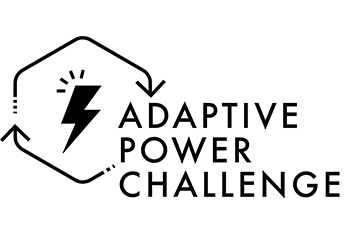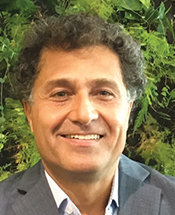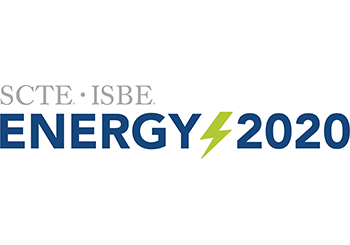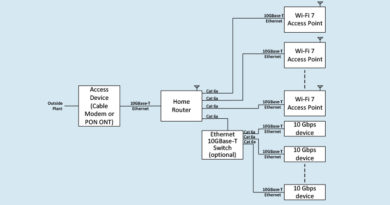A Win-Win for Teleste, SOFC.nl and Cable
When Teleste and SOFC.nl Holding walked off with awards in the Adaptive Power Challenge at SCTE•ISBE Cable-Tec Expo, it was the culmination of a months-long competition that was designed to spur innovation around reducing energy usage by cable system operators. Earlier in the year Liberty Global, Comcast and SCTE•ISBE had set about to creating a challenge, which aimed to challenge thinking around energy usage in the cable industry.
The top six finalists from a score of entries were invited to pitch their solutions for the winning spots. An expert panel of judges selected the two winners based on the extensive impact they could have on the industry.
While we often take energy for granted, the consumer technology revolution that our industry has unleashed would grind to a halt without ubiquitous power availability. After making network plans for decades based on assumptions of readily available and inexpensive energy, cable is looking at how we can produce, source or utilize power more efficiently.
In this way, our industry is no different from consumers worldwide or the power industry itself. We recognize that in an ecosystem in which coal, gas and oil are still the leading fuels for energy generation, dramatic changes are needed to forestall the impact of power production on our environment.
Even more to the point is the importance of solutions that address supply, given this reality: At the same time that generators are under stress to deliver more power, a warming climate is making cooling those generators increasingly difficult and expensive.
For cable, the Adaptive Power Challenge is a step in that direction. The APSIS™ (Adaptive Power Systems Interface Specification) standard is a framework for engineers and technologists to rethink power utilization. We need to evolve from networks in which equipment is fully on at all times, regardless of subscriber demand, to one in which network powering consumption is aligned with customer usage.
Imagine if we all used firehoses when we brushed out teeth; not only would it look ridiculous, but it also would be unsustainable. Thankfully, we’re able to turn the tap on ever so slightly and turn it off when not in use, so as to limit the amount of water consumed. That’s the principle at work here.
Cable has through the years contributed to energy conservation and more efficient living through such connectivity services as video conferencing, facilitating the growth of digital services like online banking, and in-home shopping. The SCTE•ISBE Energy 2020 program shifted the conservation focus to cable networks, and the Adaptive Power Challenge sharpened the focus even further. Here are the six adaptive power solutions that merited consideration in the final round at SCTE•ISBE Cable-Tec Expo:
 Teleste’s Make Sense, which would offer three alternatives for operating existing amplifiers with lower bias current when lower network usage allows amps to run below their 1.2 GHz maximum capacity.
Teleste’s Make Sense, which would offer three alternatives for operating existing amplifiers with lower bias current when lower network usage allows amps to run below their 1.2 GHz maximum capacity.
SOFC.nl Holding B.V.’s Distributed Negative Emission SOFC Power, which would address demand by using small solid oxide fuel cells to directly supply additional power where required.
Alpha Technologies’ Enhanced Power Systems, which would enable operators to extend standby power availability;
Technetix’s Intelligent Power System, which would reduce current through high-power amplifiers (hybrids), saving up to 10% power per device;
Energy Cool’s Energy Cloud, which would utilize distributed UPS batteries to deliver demand response services to the power grid.
Robert F. Cruickshank III’s Grid over Broadband™: Jointly Optimizing Electric Power Generation and Residential Electrical Use, which would use the superior speed and two-way connectivity of the broadband network to enable the existing electrical grid to deliver and manage power in more effective and efficient ways.
While Teleste and SOFC.nl walked out of Cable-Tec Expo with $10,000 each in prize money, just as importantly they now have the chance to explore opportunities for their solutions with major operators, making the Adaptive Power Challenge a win-win opportunity. The Adaptive Power Challenge has inspired new solutions that enable the best kind of energy management and cost control by using and paying for power only when needed. It’s that kind of thinking that will continue to move the environmental needle further and reduce operational costs in the future.
 Sam Khola,
Sam Khola,
Director Sustainability,
Liberty Global
Sam Khola is Director Sustainability, working in the Corporate Responsibility team of Liberty Global. Sam is responsible for defining, implementing, evaluating and advocating strategies, programs and communications focused on driving environmental actions across Liberty Global. Sam has been part of the Liberty Global family for 14 years in various roles and capacities. Most recently he was responsible for operational readiness of services to the European footprint. Previously Sam worked in various architecture, design and project management roles at Ericsson Radio Systems.



